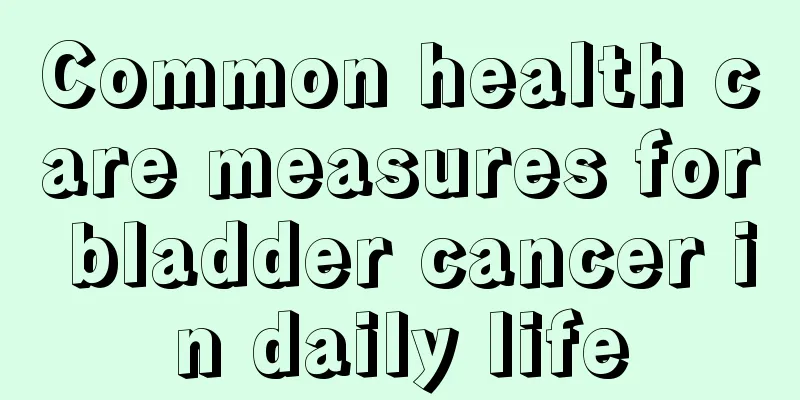How to increase your heart rate

|
The normal heart rate is between 60-100 beats per minute. Athletes have higher cardiovascular function than normal people due to long-term exercise, so the frequency will be slightly slower. Our heart is closely related to human life, and the frequency of heartbeat can also reflect a person's life span. Whether the heart rate is too fast or too slow, it will be harmful to the body. Let's learn about the specific situation in this article. The number of heartbeats determines when you die Each of us hopes that we can live a long and healthy life and does not want to leave this world early due to some reasons. But did you know that factors such as whether the heartbeat is normal and whether the heartbeat is fast or slow are directly related to our lifespan? A person's heart beats approximately 2.5 billion to 3 billion times in a lifetime. Controlling the heartbeat to be normal, neither too fast nor too slow, can help prolong life. The normal resting heart rate of an adult is between 60 and 100 beats per minute. A foreign study conducted a 26-year follow-up survey on people aged 35 to 84. The results showed that as the heart rate increased, the mortality rate showed a significant upward trend, especially in men. Of course, a slow heart rate is also not good for health. If a person's life span is depicted in a curve graph, then it will present a U-shaped curve. That is to say, if a person's heart rate is lower than 5 beats per minute for a long time or exceeds 80 beats per minute for a long time, both situations will lead to an increased mortality rate. A large-scale sample survey in China also found that people with a fast heart rate have a shorter life expectancy than the average person. In comparison, people with a heart rate of 60 beats per minute live longer than those with a heart rate of 70 beats per minute, and people with a heart rate of 70 beats per minute live longer than those with a heart rate of 80 beats per minute. Long-term slow heart rate can cause the body to suffer from hypoxia and ischemia due to insufficient blood "pumped" by the heart. The compensatory ventricles speed up their movement to supply blood. Excessive ventricular movement can cause insufficient blood return. In severe cases, it can lead to sudden death, or even death in the sleep. Therefore, if the heart rate and pulse are less than 50 times, you should go to the hospital for a detailed examination to find out the cause. If it is pathological, a pacemaker should be installed to speed up the heart rate in severe cases. Therefore, a fast heart rate will also shorten a person's lifespan. This is because if a person's heart beats too fast, it will accelerate the consumption of the total number of heartbeats in a lifetime and will also accelerate the body's oxygen consumption. Therefore, a fast heartbeat will shorten a person's life. Long-term tachycardia can lead to heart enlargement and heart failure. For those with a history of coronary heart disease, it can directly induce a coronary heart disease attack, thereby increasing the incidence and mortality of cardiovascular disease. Especially for patients with hypertension, the heart rate should not exceed 80 beats/minute. Once the heart rate exceeds 100 beats/minute, you should go to the hospital in time to find out the cause and receive treatment. If you want to slow down your heart rate, you should pay attention to reducing work pressure and mental burden. Obese people should lose weight, exercise more, eat a low-salt diet, quit smoking and drinking, etc. Pathological causes of a rapid heart rate include infection, fever, anemia, hyperthyroidism, heart failure, etc. These conditions require timely treatment. It should be reminded that people with high blood pressure, high blood sugar and high cholesterol must exercise moderately. If their heart rate cannot recover to below 100 beats per minute within 5 minutes after exercise, the intensity is too high. How many beats per minute is the normal human heart rate? 1. Adult heartbeat The normal heart rate for an adult is between 60 and 100 beats per minute, but most people take the middle value, with the majority falling within the range of 70-90. Among them, men beat slower, while women beat faster. Heart rates tend to be faster when one is emotionally excited or exercising, and slower when one is resting or idle. 2. Children's heartbeat Children's heart rate is generally faster, most of which are between 90-130. The younger the child, the faster the heart rate tends to be. This is common knowledge. 3. Athlete's Heartbeat Professional athletes have relatively slow heartbeats, only about 60 times per minute. Some adults with heart disease have heart beats over 100 or even 120. This is tachycardia, which is a problem and requires medical attention. |
<<: Are pulse and heart rate the same concept?
>>: Long distance marathon heart rate range
Recommend
The difference between orange and tangerine
It is the season for eating oranges again. It is ...
Is bread flour high-gluten flour?
Many people have a question, that is, the bread f...
Is the stool dark green, black and sticky?
The human body's stool can reflect whether th...
What causes white spots on fingernails?
I believe many people are familiar with the pheno...
Why does my heart hurt a little? Prevent diseases
The heart is the most important part of the human...
What should you pay attention to if you have allergic asthma?
Allergic asthma is a relatively stubborn disease ...
What are the treatments for eye stones
Eye stones are relatively unfamiliar to many peop...
What is the reason for high peroxidase
Many people find that their thyroid peroxidase le...
Is the white line on the shrimp head a parasite?
For a long time, there has been a rumor on the In...
Diet therapy for treating weak constitution of breast cancer patients after surgery
After breast cancer surgery, patients will be rel...
How to tie long shoelaces
In summer, many people like to wear canvas shoes ...
Why is my back sweating all the time?
Sweating on the back is a very common phenomenon,...
Hair follicle regeneration
Everyone wants to have healthy hair follicles. Be...
How to smoke with the least harm to the body
We all know that smoking is harmful to health. It...
What can cause poisoning when consumed with red wine?
It is best not to eat durian, persimmon, hawthorn...









